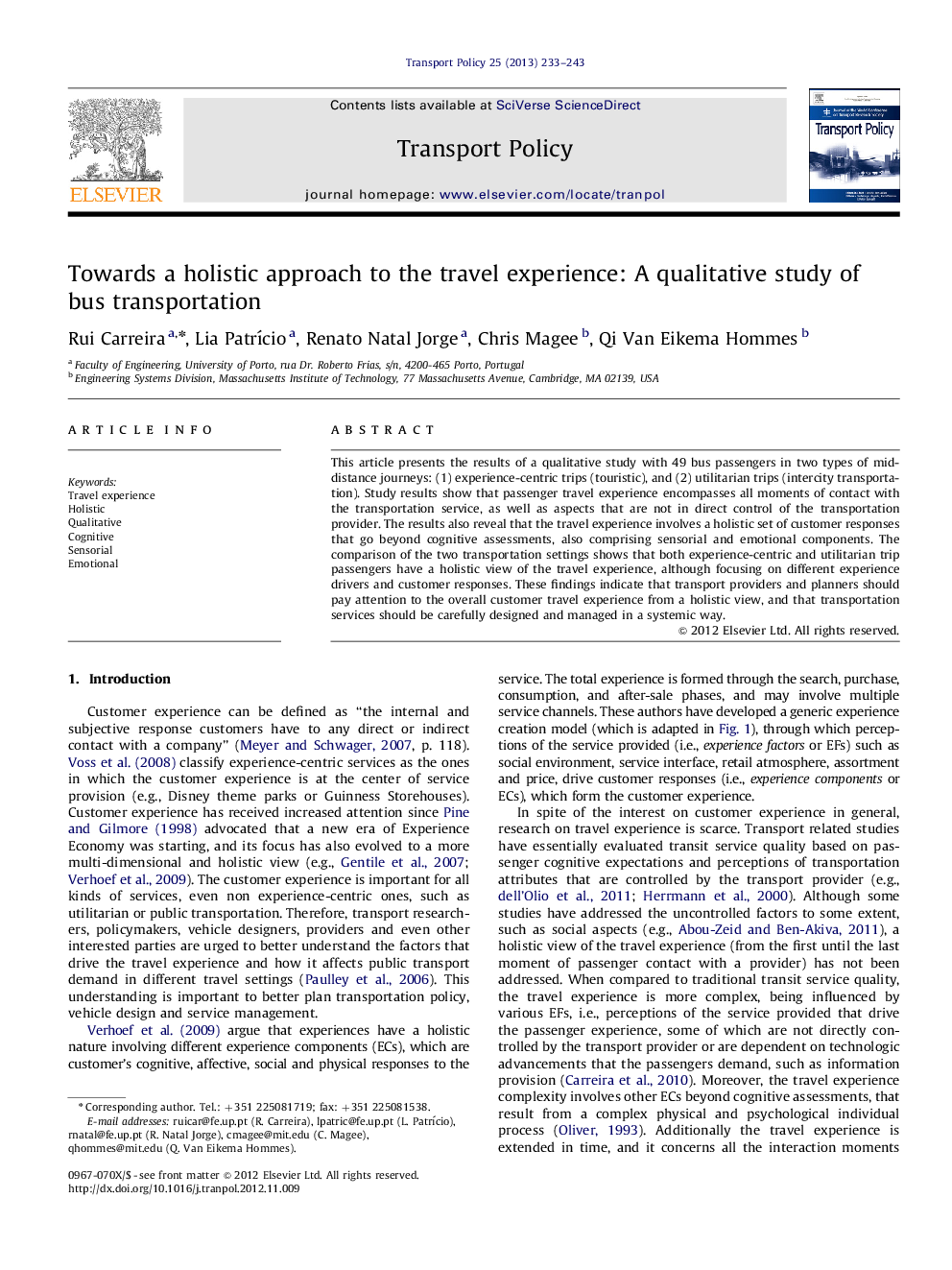| Article ID | Journal | Published Year | Pages | File Type |
|---|---|---|---|---|
| 1065024 | Transport Policy | 2013 | 11 Pages |
This article presents the results of a qualitative study with 49 bus passengers in two types of mid-distance journeys: (1) experience-centric trips (touristic), and (2) utilitarian trips (intercity transportation). Study results show that passenger travel experience encompasses all moments of contact with the transportation service, as well as aspects that are not in direct control of the transportation provider. The results also reveal that the travel experience involves a holistic set of customer responses that go beyond cognitive assessments, also comprising sensorial and emotional components. The comparison of the two transportation settings shows that both experience-centric and utilitarian trip passengers have a holistic view of the travel experience, although focusing on different experience drivers and customer responses. These findings indicate that transport providers and planners should pay attention to the overall customer travel experience from a holistic view, and that transportation services should be carefully designed and managed in a systemic way.
Graphical abstractFigure optionsDownload full-size imageDownload as PowerPoint slideHighlights► Observations and interviews were performed during medium range bus trips. ► Travel experience involves all moments of contact with the transportation service. ► Travel experience is driven by factors, some of which are not controlled by provider. ► Transportation service generates a holistic set of customer responses. ► Both leisure and utilitarian passengers experience trips from a holistic perspective.
